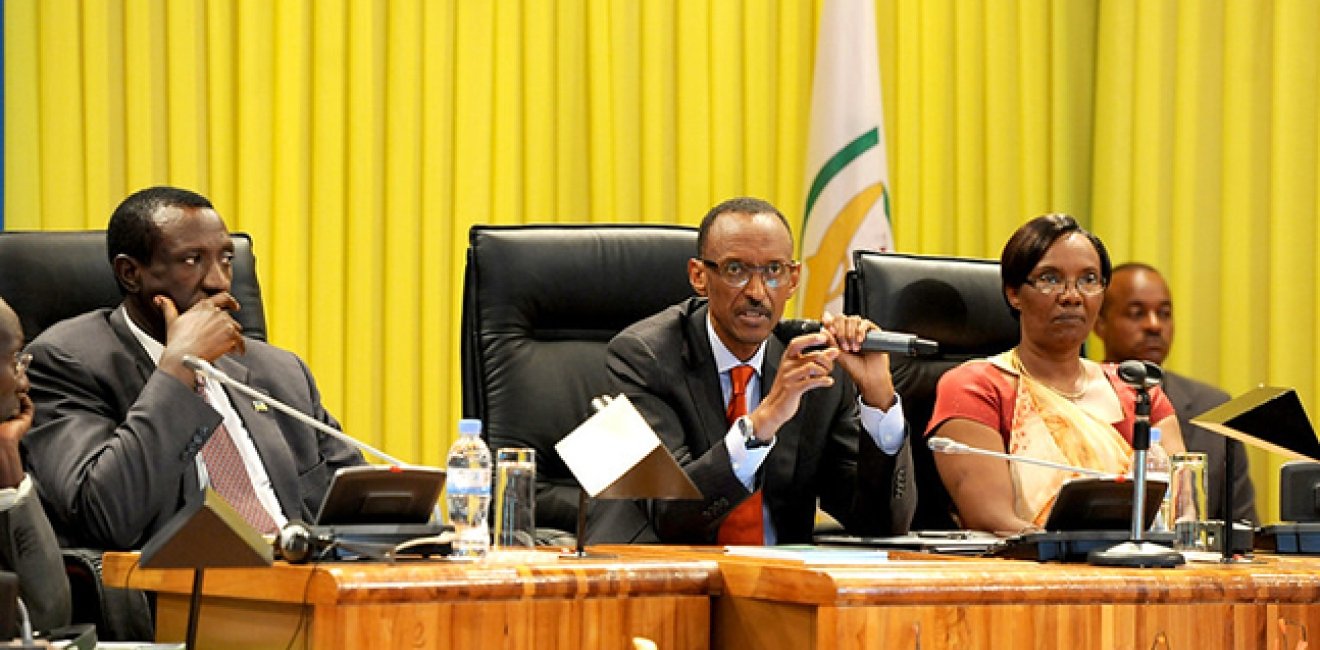
A blog of the Africa Program
Young techies are a growing sight on the streets of Kigali, Rwanda's capital, where not long ago volunteers from an alphabet soup of development organizations once dominated. Indeed, the country's growth story borders on the miraculous. Since the 1994 genocide, which led to an estimated 800,000 deaths and decimation of its national infrastructure, the Rwandan economy has grown exponentially.
Economic development has also led to broad-based improvements in living standards. Poverty has fallen markedly, primary school enrollment is almost universal, and the business environment often stakes a claim to being Africa's most competitive. Now, a range of well-known multinational corporations are clamoring for a piece of the growing cake.
The icing for many are developments in governance standards — public service delivery has blossomed. Access to energy was at just 1 percent after the violence ended, now it is nearly 50 percent. Rwanda also boasts the highest proportion of women in politics of anywhere in the world, with parliamentary elections in 2018 seeing women fill just under two-thirds of seats.
The breakneck rate of progress has led many in the international community to label the country "Africa's Singapore." The comparisons with the Asian city-state, however, do not end with economic prosperity. A quarter of a century on from the Rwandan genocide, many are questioning whether the country is a case study of success, emphasizing that flashy gross domestic product (GDP) figures are blinding out its shortcomings.
President Paul Kagame, the rebel leader who helped end the mass slaughter in 1994 and has led the country since, has been drawing negative comparisons with Singapore's Lee Kuan Yew, who is credited with taking the country from the third- to first-world, in a single generation. The naysayers claim Rwanda's growth has come at the expense of human and democratic rights — a critique often levied upon Mr. Lee in his three decades as prime minister until 1990.
They have a point. Kagame's Rwandan Patriotic Front (RPF) has gained notoriety for attacking freedom of speech. Print and broadcast media are dominated by pro-government views, while threats and violence often follow critical articles about the government. As such, journalists regularly exercise self-censorship. Many prefer to voice their criticism from abroad.
The RPF has also actively ensured the country remains a de-facto one-party state. Opposition candidates have tended to end up in prison, severely injured, or even assassinated. In March, the body of Anselme Mutuyimana, from the United Democratic Forces of Rwanda, the country's most vocal opposition alliance, was found with suspected signs of strangulation. Later in the year, one member of the party disappeared and another was stabbed to death by unknown assailants.
Physical actions have been matched by legal ones. In 2015, President Kagame was able to pass a constitutional amendment that enabled him to run for a third seven-year term. Meanwhile, the presidential election last year, which saw the strongman re-elected with 98.8 percent of the vote, was widely considered to be unfair by independent observers. The Economist Intelligence Unit's 2019 Democracy Index unsurprisingly considered Rwanda as a democracy in name only.
For some, Kagame's approach is a necessary evil and even a model for developing and gradually democratizing ethnically ruptured African states. Indeed, even Ethiopian prime minister and recent Nobel Peace Prize winner, Abiy Ahmed's efforts to improve political freedoms in the African nation has energized identity politics and fomented ethnic tension.
Those advocating for Rwanda's place as a success story are quick to remind detractors of its historical context. They point out that visceral tensions between the Tutsi and Hutu tribes, following the bloodshed, made it impossible for democratic institutions to take root so quickly after. Media controls were needed to prevent the spread of hateful rumors, which also helped ignite the genocide. Meanwhile, a strong autocratic ruler was required to push through legislative changes to return growth to the country and clamp down on any challenges to peace, they say.
Yet on the 25th anniversary of the genocide, with GDP set to continue rising at around 8 percent in the years ahead, the country's legacy remains in debate. But as a new post-genocide generation rises, Kagame's authoritarian style will increasingly face more opposition. There will be greater thirst for broader governance reforms to bring more personal freedoms and rights. Sometimes economic miracles are simply not enough.
Tej Parikh is a global policy analyst and journalist. He was formerly an associate editor and reporter at the Cambodia Daily. He tweets @tejparikh90.
Author

Africa Program
The Africa Program works to address the most critical issues facing Africa and US-Africa relations, build mutually beneficial US-Africa relations, and enhance knowledge and understanding about Africa in the United States. The Program achieves its mission through in-depth research and analyses, public discussion, working groups, and briefings that bring together policymakers, practitioners, and subject matter experts to analyze and offer practical options for tackling key challenges in Africa and in US-Africa relations. Read more

Explore More in Africa Up Close
Browse Africa Up Close
The Innovative Landscape of African Sovereign Wealth Funds



